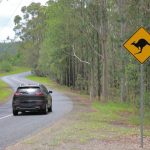The Australian Outback, with its vast, sweeping landscapes and unique wilderness, beckons adventure seekers and road trip enthusiasts from around the world. This remote and untamed region offers an unparalleled opportunity to explore the beauty of the land “down under.” However, traversing the Outback presents its own set of challenges and demands a deep respect for the environment and an understanding of the risks involved. Whether you’re planning a long-distance road trip, a camping adventure, or simply want to explore the less-traveled parts of this remarkable country, our guide will equip you with the knowledge and preparation needed to make your journey both memorable and secure.
Understanding the Australian Outback
Definition and Characteristics of the Outback
The Australian Outback, often referred to simply as “the Outback,” encompasses the vast, arid interior of Australia. It is characterized by its remoteness, extreme climatic conditions, and sparse population. The region is home to a diverse array of landscapes, including deserts, grasslands, and rocky terrains.
Isolation and Limited Infrastructure
One of the defining features of the Outback is its isolation. Many areas are far from major cities and towns, which means limited access to services and infrastructure. This isolation can pose challenges in emergencies and requires careful planning.
Unique Challenges for Drivers
Driving in the Outback can be uniquely challenging due to factors such as vast distances between settlements, harsh weather conditions, and the presence of wildlife. It’s crucial to understand these challenges and be prepared for them.
Vehicle Preparation
Ensuring Your Vehicle Is in Good Condition
Before embarking on an Outback adventure, make sure your vehicle is in top-notch condition. Regular maintenance checks, including oil changes, tire rotations, and brake inspections, are essential. Carry spare tires, tools, and emergency supplies, such as a first aid kit, torch, and extra water.
Appropriate Vehicle Choice
Selecting the right vehicle is critical for an Outback journey. Four-wheel-drive (4×4) vehicles are often the best choice, as they offer improved traction and handling on rough terrain. Consider the type of roads you’ll encounter and choose your vehicle accordingly.

Route Planning
Researching the Route
Thoroughly research your intended route, using maps, GPS systems, and local advice. Familiarize yourself with the road conditions, points of interest, and potential hazards. Local knowledge can be invaluable for a safe journey.
Informing Others About Your Plans
Always inform someone about your travel plans, including your expected route and estimated return time. In case of unforeseen circumstances, this information can be vital for search and rescue efforts.
Fuel and Water Availability
Fuel stations can be few and far between in the Outback. Ensure you have sufficient fuel for your journey and carry extra containers if necessary. Water is equally critical, so carry more than you think you’ll need, as dehydration can be a significant risk.
Checking Weather Conditions
The Outback’s weather can be extreme, with scorching heat during the day and cold nights. Stay updated on weather conditions and be prepared for sudden changes.
Safe Driving Techniques
Speed Limits and Road Conditions
Adhere to speed limits and adjust your speed to suit road conditions. Unsealed roads and gravel tracks require a different approach than sealed highways. Watch out for corrugations and washouts, which can be treacherous.
Wildlife Hazards and Road Trains
Be cautious of wildlife, particularly kangaroos and other animals, which can suddenly dart onto the road. Additionally, road trains, massive truck combinations, are a common sight in the Outback, so maintain a safe distance when passing or following them.
Dust and Visibility
Dust is a constant companion on Outback roads. Reduce your speed when visibility is poor, and use headlights to make your vehicle more visible to others.
Defensive Driving Practices
Practice defensive driving by anticipating the actions of other road users, especially on narrow and winding roads. Keep a safe following distance and avoid sudden maneuvers.
Roadside Emergencies
Car Breakdowns
In the event of a breakdown, stay with your vehicle, as it provides shade and is easier to locate. Use communication devices, like a satellite phone or UHF radio, to call for help.
First Aid and Medical Emergencies
Carry a well-equipped first aid kit and know how to use it. In case of medical emergencies, contact emergency services immediately.
Communication and Emergency Beacons
Invest in an emergency beacon, which can transmit your location in a crisis. Having multiple means of communication is essential for safety.
Waiting for Assistance
Be patient while waiting for help. It can take time for assistance to reach you in the Outback, so conserve your resources and stay calm.

Camping and Accommodation
Camping Safety
If you plan to camp in the Outback, choose safe and designated locations. Be aware of fire safety guidelines, especially during the dry season, to prevent accidental bushfires.
Accommodation Options
Remote stations and roadhouses provide lodging options in the Outback. It’s advisable to book in advance, especially during peak tourist seasons.
Cultural and Environmental Respect
Respecting Indigenous Lands and Heritage
Many parts of the Outback hold significant cultural and spiritual importance to Indigenous communities. Respect signs and requests to stay out of certain areas.
Environmental Conservation
Practice responsible travel by staying on designated roads and disposing of waste properly. Leave no trace and help preserve this pristine environment.
















